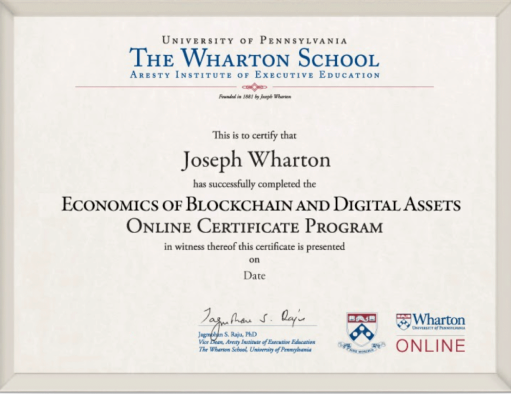.jpeg)
Chief financial officers are an integral part of the leadership team of any company. Were it not for the efforts of CFOs, companies would be unable to orient themselves for financial performance and future expectations. The economy is quickly shifting, as is the way that a company tracks and keeps account of different assets.
Companies like Facebook have even experimented with different cryptocurrencies like Diem with varying degrees of success. With such prominent companies making these moves, the CFO must stay apprised of the latest trends and technology related to making money and accounting for funds.
Traditionally, CFOs have been responsible for a host of essential functions; the financial buck stops with them. As a member of the C-suite and a top-level executive, CFOs oversee all financial operations such as P&L statements, forecasting revenue/profit, and proposing actions to improve profitability.
Since businesses rise and fall based on profitability, the CFO's position is critically important. Furthermore, when financial plans are improperly executed, the CFO is one of the first people who must account for the misstep. Omissions and vacuums of information can often be as damaging as acting on the wrong information.
A modern CFO has all of the responsibilities of the traditional CFO but with the added complexity of a highly dynamic, information-driven world. If the company is large enough, the CFO must stay abreast of world events that involve foreign exchange rates, trans-national supply chains, shipping delays, and supersonic technical advancements.
As with many parts of business, the best way to ensure success for a CFO is a multi-pronged approach to qualification, networking, leadership, and learning.
As the world becomes more connected and more financially complex, a CFO's responsibilities and attention to detail become more pronounced. Fortunately, the number of tools that allow a CFO to perform his or her job successfully is constantly increasing.
Fintech companies cover a wide array of different functionalities and can affect CFOs and the companies they lead in a myriad of ways. For example, within the last month, a new payment processor was released that is built on top of blockchain technology. This B2B2C payment gateway allows for transactions in cryptocurrencies with immediate fiat settlement and 80 percent fewer transaction fees. If a company wanted to receive payments via cryptocurrency, the CFO could guide them to the proper gateway for their company.
CFOs undoubtedly consider this information useful as cryptocurrencies grow in ubiquity and value. Over $2 trillion is held in cryptocurrencies, which people are beginning to use as a type of currency. As a result, CFOs must stay abreast of technology trends via fintech companies and more to take full advantage of new technological developments.
Regardless of the industry or position, one of the best ways any professional can continue to advance their career and stay ahead of the curve is by attending networking events and webinars, whether in person or online. One highly recommended strategy is attending a handful of events unrelated to a professional's own industry or adjacent to his or her industry.
This new industry knowledge helps the CFO to understand on a macro level what is going on in the world and uncover opportunities and risks that may otherwise go unseen or unrecognized. Not only are networking events a great way to stay up to date with the latest developments in other industries, but they can also be great places to meet strategic contacts or future talent.
A formal advanced education in economics, accounting, or finance is part of the basic "permission-to-play" requirements for a CFO. However, once you've finished your master's or doctoral studies, the lifestyle of a perpetual learner must continue. This is why educational institutions like the Wharton School offer leading educational opportunities in financial technology with blockchain certificate courses.
As the world tends more and more towards bitcoin and blockchain technology, it becomes more critical for the CFO to understand how these advancements may impact his or her company. For over 100 years, Wharton has led the field of education for business professionals. Wharton created the Economics of Blockchain and Digital Assets course to prepare leaders for the burgeoning adoption of blockchain technology and the management of digital assets.
While the first point dealt with industry-changing technology like blockchain, there are other pieces of technology (such as SaaS) that can change how data is aggregated and interpreted. New SaaS takes advantage of AI and location data like never before and gives companies insights into their customers' habits. For example, multi-touch attribution companies are giving CFOs a peek into walled gardens to help them understand where the company's revenue originates. The more this kind of data can be reported and measured, the more the CFO can project future income and understand how to maximize it.
Well-developed recruiting and team-building skills also help CFOs stay ahead of the curve. Hiring and retaining the right talent can make the difference between a successful CFO and a short-lived stint at the top. To the extent that the CFO lacks specific technical knowledge, he or she should seek to fill that gap with talent that possesses the proper knowledge. Diversifying the knowledge base to avoid the risks of blind spots is an excellent way for CFOs to minimize adverse outcomes.
In the past, CFOs were relegated to keeping the books, ensuring adherence to regulations, and maintaining a business' profitability. Today, CFOs are much more involved in high-level strategy and planning than even 20 years ago. CFOs should understand the company outside of their financial silo, which means interacting with the sales teams, operations, HR, and more. As everything becomes more integrated, the CFO needs to have, at minimum, a high-level idea of what is occurring in the company.
As technology advances and the world changes, the responsibilities of a CFO become more and more demanding. Staying ahead of the curve is becoming an increasingly complex and vital task that helps CFOs anticipate and plan for future events. Among the most imposing developments is blockchain technology. The Wharton School can help prepare CFOs to understand the challenges and opportunities this new technology presents. Visit our blockchain certificate course for more information and see why leaders at Tesla, Google, and BlackRock trust Wharton with their education.
This article is for marketing purposes only and does not intend to represent the opinions of the program.


